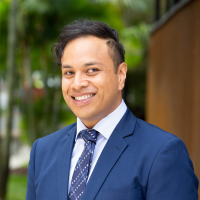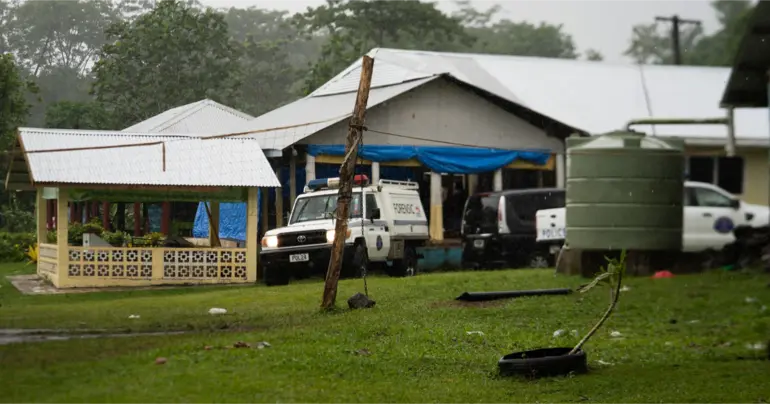New health project for New Zealand's diverse Pacific Rainbow community
 By Sapeer Mayron
•
05 June 2020, 2:00PM
By Sapeer Mayron
•
05 June 2020, 2:00PM
A Samoan scholar from Vaimoso, Seutaafili Dr. Patrick Thomsen has won a prestigious Health Research Council fund to fill the data gap on the Pacific Rainbow community of New Zealand.
The Manalagi Project is a three year research effort which hopes to gather genuine data on who the community are, where they are from and what their needs are and help policymakers design work better suited to their needs.
From Samoa’s fa’afafine to Fijian vakasalewa, each Pacific Island community’s rainbow members have been systematically undercounted and underserved by the health sector, and this project aims to fix that.

“It’s rare to see fa’afafine represented in the New Zealand image of what the Pacific contribution is,” Seutaafili, who grew up in Manurewa, said.
"The NZ image tends to relate to sport or entertainment. There are a whole lot of us here. There are a lot of Pasifika people here who contribute in different ways.”
The project’s full title is: Manalagi: Aotearoa Pacific Rainbow/Queer/LGBTIQA+ MVPFAFF Health and Wellbeing Project, and it received NZ$249,980 (T$ 428,831) from the Health Research Council’s Emerging Researcher Fund.
M.V.P.F.A.F.F. stands for the names of the broad gender spectrum from across the region: mahu (Tahiti and Hawaii), vakasalewa (Fiji), palopa (Papua New Guinea), fa'afafine (Samoa), akava'ine (Cook Islands) fakaleiti (leiti) (Tonga) and fakafifine (Niue).
Seutaafili said this community is one that, despite being at risk of stigma, discrimination and the myriad health and wellbeing challenges that come with that, is not counted in the New Zealand census.
This means policymakers don’t have the baseline data to design health interventions around that actually help people in need.
People in this community suffer the twin challenges of stigma and ignorance against their gender or sexuality, and the unique problems Pasifika people face in New Zealand.
There, Pacific Island families are more likely to be affected than other ethnic groups by poor nutrition, obesity and smoking, and health outcomes for Pacific Islanders with type two diabetes or cardiovascular diseases is worse than it is for the rest of the population, according to research by the New Zealand Government.
But without real data, solutions to these problems won’t be easy to develop.
“One thing that is important is to allow space for conversation,” he said.
“I think this kind of research helps to forefront the issue. Raising awareness around the specific impacts around stigma and discrimination in this space I hope opens up the opportunities for different families in our communities to have the conversation.”
The researcher has partnered with the Auckland organisation F’INE Pasifika Aotearoa which provides support accessing social welfare to the wide Pacific Rainbow community.
And in order for the community itself to have a stake in the research and ownership over its results, he wants to recruit people to collect the data, interview subjects and author their own stories, rather than have the project exclusive to a small research team.
The project will begin with a consultation in 2021 where the Rainbow community will be invited to co-design the survey and the data gathering methods and ethics which will guide the researchers. The overarching ethos is “nothing for us without us,” Seutaafili said.
“If we are taking people’s narratives and using them in this way we have to acknowledge those experiences do not belong to us, they belong to the community.
“I’ll be making sure we can find a way to co-publish and give authorship to people in the community as much as possible so it’s not something our research team would own on their own and get authorship credit for.”
Seutaafili is a lecturer in the University of Auckland’s Faculty of Arts, where he teaches Pacific Studies.
In his own writings on what the project aims to achieve, he says:
“I have seen many fa’afafine and sisters from our fellow Pacific communities struggling through simultaneously racist and heterosexist norms in our society, but still making important contributions to our families and communities.
“So, I’ve found it disheartening that their stories are almost always left out when we talk about Pacific peoples and our contribution to New Zealand society.”
The project is open for collaboration from anyone from the community, Seutaafili said. Anyone is welcome to contact him by email to talk about getting involved.
Tags
 By Sapeer Mayron
•
05 June 2020, 2:00PM
By Sapeer Mayron
•
05 June 2020, 2:00PM











